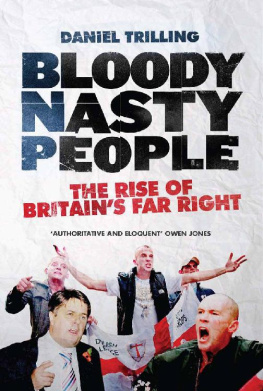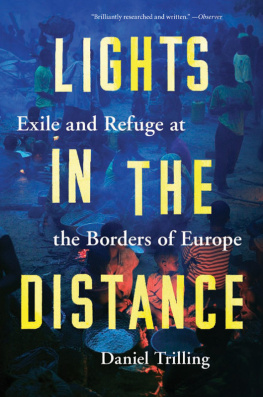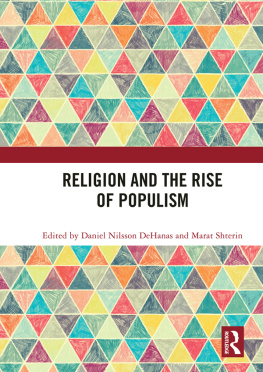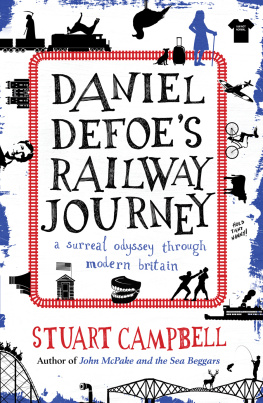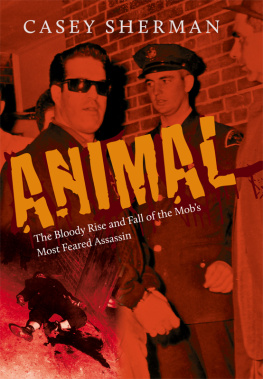Daniel Trilling - Bloody Nasty People: The Rise of Britain’s Far Right
Here you can read online Daniel Trilling - Bloody Nasty People: The Rise of Britain’s Far Right full text of the book (entire story) in english for free. Download pdf and epub, get meaning, cover and reviews about this ebook. year: 2012, publisher: Verso, genre: Politics. Description of the work, (preface) as well as reviews are available. Best literature library LitArk.com created for fans of good reading and offers a wide selection of genres:
Romance novel
Science fiction
Adventure
Detective
Science
History
Home and family
Prose
Art
Politics
Computer
Non-fiction
Religion
Business
Children
Humor
Choose a favorite category and find really read worthwhile books. Enjoy immersion in the world of imagination, feel the emotions of the characters or learn something new for yourself, make an fascinating discovery.
- Book:Bloody Nasty People: The Rise of Britain’s Far Right
- Author:
- Publisher:Verso
- Genre:
- Year:2012
- Rating:4 / 5
- Favourites:Add to favourites
- Your mark:
- 80
- 1
- 2
- 3
- 4
- 5
Bloody Nasty People: The Rise of Britain’s Far Right: summary, description and annotation
We offer to read an annotation, description, summary or preface (depends on what the author of the book "Bloody Nasty People: The Rise of Britain’s Far Right" wrote himself). If you haven't found the necessary information about the book — write in the comments, we will try to find it.
Bloody Nasty People: The Rise of Britain’s Far Right — read online for free the complete book (whole text) full work
Below is the text of the book, divided by pages. System saving the place of the last page read, allows you to conveniently read the book "Bloody Nasty People: The Rise of Britain’s Far Right" online for free, without having to search again every time where you left off. Put a bookmark, and you can go to the page where you finished reading at any time.
Font size:
Interval:
Bookmark:

BLOODY NASTY PEOPLE
The Rise of Britains Far Right
by
Daniel Trilling

First published by Verso 2012
Daniel Trilling 2012
All rights reserved
The moral rights of the author have been asserted
1 3 5 7 9 10 8 6 4 2
Verso
UK: 6 Meard Street, London W1F 0EG
US: 20 Jay Street, Suite 1010, Brooklyn, NY 11201
www.versobooks.com
Verso is the imprint of New Left Books
Ebook ISBN-13: 978-1-84467-960-7
British Library Cataloguing in Publication Data
A catalogue record for this book is available from the British Library
Library of Congress Cataloging-in-Publication Data
Trilling, Daniel.
Bloody nasty people : the rise of Britains far right / by Daniel Trilling.
p. cm.
Includes bibliographical references and index.
ISBN 978-1-84467-959-1 (hardback : alk. paper) -- ISBN 978-1-84467-960-7 (ebook)
1. British National Party (1982- ) I. Title.
JN1129.B75T75 2012
324.241093--dc23
2012022591
Contents
Introduction
On a spring afternoon in early 2011, I was sitting outside a country pub, when a car pulled up. Out stepped two well-built minders, followed by the portly figure of Nick Griffin, chairman of the British National Party. The BNP has the dubious distinction of being Britains most successful far-right party ever; despite roots in a neo-Nazi subculture, it notched up a string of victories in local elections over the past decade, along with two seats in the European Parliament, before an electoral collapse in 2010. It remains an ugly presence on the countrys political landscape, with Griffin periodically invited onto national media to promote the BNPs racist policies. Yet, for all that, it has been little understood.
I was hoping to find out more. Griffin could not meet me in central London a security risk, he had told me when we spoke on the phone so instead we had arranged to meet here, a few miles outside the Essex town of Epping. (Are you a real ale drinker? he had asked me. Choose a pub from the Good Beer Guide .) The trio looked tired and grumpy when they emerged from the car. Because he is so widely despised, Griffin cant take public transport and so spends hours crammed alongside his hired muscle into a grey hatchback. He speaks ever so slightly too fast, like a man who is used to being heckled or cut off mid-sentence. Since he was elected to the European Parliament in 2009 this semi-fugitive lifestyle has intensified as he makes regular trips across France and Belgium. Griffin, dressed in a dark suit, walked over, shook my hand and sat down; one of his minders nipped inside the pub and returned carrying an unappetizing on-the-road snack: half a Cornish pasty, on a paper napkin, and a packet of dry-roasted peanuts. This is lunch, thats why Im not sharing any with you, Griffin said, mouth full, as I fiddled with my Dictaphone and searched in my bag for a notebook.
So, Griffin eventually said, brushing peanut dust from his jacket sleeves. Tell me about this book.
In April 2008, the New Statesman sent me to review a music festival in East Londons Victoria Park, held to mark the thirtieth anniversary of Rock Against Racism, the cultural movement that had galvanized opposition to the National Front in the late 1970s. My parents, both of whom had gone on anti-racist demos during this period, had told me stories about Rock Against Racism when I was younger, and I was excited to see some of that spirit revisited. It was timely, too: for several years, the British National Party had been growing in prominence, winning seats on a number of councils across England. Elections to the London Assembly, where the BNP was expected to pick up support, were only a few days away.
But something seemed wrong: while thousands of smiling, ethnically diverse teenagers turned out to see the bands, under the slogan love music, hate racism, it felt strangely detached from reality. Thirty years previously, Victoria Park, in the heart of Londons East End, had been the front line of the fight against the National Front. In 2008, the BNP was gaining support on the outskirts of the capital, miles away from cosmopolitan inner London. The image of its supporters was not that of angry young skinheads, but of pessimistic ex-Labour voters. And surely Britain, too, was a changed place? Hadnt the battle by black and Asian immigrants to have equal place in popular culture been won? Hate racism? Well, of course nobody in twenty-first-century Britain wanted to be known as a racist , not even the BNP.
At the time, I could not articulate these thoughts, and my overly cynical review of the festival drew stinging criticism from trade union leaders who had helped organize the event. Praise came from one quarter only: a BNP website that crowed about the partys seemingly unstoppable rise. A few days later, the BNP candidate Richard Barnbrook was elected to the London Assembly with over 5 per cent of the vote. A relatively small achievement, but another first for a party whose opponents were adamant was a fascist one. Knocking on doors is the secret of our success, claimed the website, adding: Our strategy of meeting voters face to face on the doorstep and backing up our campaigns with well produced and easy-to-read election leaflets is providing the right results. There has been much talk... of the Labour Party being disengaged from voters and it is. The BNP on the other hand, through our canvassing, are fully connected.
Fully connected? What on earth did that mean? And how exactly did a party whose own constitution bore a commitment to reversing the tide of non-white immigration and to restoring... the overwhelmingly white makeup of the British population that existed in Britain prior to 1948 win votes simply by knocking on doors?
These questions, and more, led me to think about this book. Who are the bloody nasty people to whom the title refers? Most obvious are the men (and a few women) who have devoted their lives to fascist and racist politics. They are not foaming-at-the-mouth monsters indeed, to be so would require far too unstable a temperament for the painstaking and unglamorous work they have put in, over years and decades, towards making the BNP a successful political party. Some may be oddballs and loners; others may be loving parents and partners; and many are gregarious (among the right people, of course). Like most of us, members of the BNP will be a combination of all these things. But they have committed themselves to a politics that even in its voter-friendly incarnation would cause untold misery and conflict among the people of this country.
But there is a distinction between committed BNP members and those who have been drawn to support the party. Most numbering well over a million will have voted BNP at some point in the past decade. Some will have leafleted or canvassed. A few have even stood for election. There is a persistent image of these people as dejected, racist white working class. This has been distorted because the image of BNP voters is a powerful tool politically. In some quarters the accusation of bigotry has been a convenient way to dismiss legitimate concerns over jobs and housing. In others, such people have been evoked piously by advocates of a halt to immigration, or by those who proclaim the death of multiculturalism. We will see how this fits into a wider problem Britain has with addressing class, where working-class people have been virtually banished from our politics and media, only to return sentimentalized or demonized according to the occasion. Bloody nasty people was a 2004 headline taken from the Sun and I have used it to raise a question: to what extent have the actions of established politicians, and the mainstream media, given the BNP fertile ground on which to operate? And do the same factors lie behind the more recent emergence of the English Defence League?
Next pageFont size:
Interval:
Bookmark:
Similar books «Bloody Nasty People: The Rise of Britain’s Far Right»
Look at similar books to Bloody Nasty People: The Rise of Britain’s Far Right. We have selected literature similar in name and meaning in the hope of providing readers with more options to find new, interesting, not yet read works.
Discussion, reviews of the book Bloody Nasty People: The Rise of Britain’s Far Right and just readers' own opinions. Leave your comments, write what you think about the work, its meaning or the main characters. Specify what exactly you liked and what you didn't like, and why you think so.

